PHOTO: Mary van Balen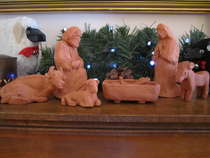 “How small and gentle his coming was. He came as an infant. The night in which he came was noisy and crowded; it is unlikely that in the traffic and travelers to Bethlehem, the tiny wail of the newly born could be heard.
“How small and gentle his coming was. He came as an infant. The night in which he came was noisy and crowded; it is unlikely that in the traffic and travelers to Bethlehem, the tiny wail of the newly born could be heard.
God approaches gently, often secretly, always in love, never through violence and fear. He comes to us, as God has told us, in those we know in our own lives…”
Caryll Houselander, The Passion of the Infant Christ, p. 46
This Christmas, after a long day at work and then baking and cleaning at home,I attended midnight mass at my parish. Walking through the parking lot, I saw candle flames flickering behind stained glass windows, and voices of the choir and congregation singing Christmas carols drifted across the snow covered neighborhood. The area, a mix of business and poor homes, looked transformed by a fresh fall of powdery snow.
Once inside, I found some friends and sat with them as we prayed and sang our way through the liturgy. A few times while standing, when my mind began to wander or my eyes closed, I caught myself from falling, sleep having descended on my in a flash.
“Why are you here,” a voice seemed to say,”when you are so tired?”
I knew. I wouldn’t miss it. I love to celebrate in this little church where the mix of ethnicities, instruments, and voices fill the small building with energy and joy. A variety of real pines strung with tiny white lights provided a backdrop for the altar and creche. Even though I could not close my eyes and ponder the mystery of the incarnation for more that a couple of seconds without tempting sleep, the profound mystery of the incarnation seeped into my mind and heart.
God comes to me in this place and with these people, not only in the word and Eucharist, but in the people themselves. The Incarnation continues through all of us, through family, friends, and strangers. I might have been on the verge of sleep, but these people did not mind. We were gathered together to remember and to worship, and in doing so, we brought Christ to one another.
When mass was over and pleasantries exchanged, I drove home and snuggled under my covers. Tomorrow I would pick up one of my daughters who had traveled back to Ohio for the holiday. We would celebrate along with my dad and other daughter, then welcome a friend for an afternoon of games and conversation before heading out to my sister and brother-in-law’s to catch up with cousins and their spouses and a fiancee.
The day would be full and I knew I would be battling sleep again, but, for the moments before drifting into pleasant sleep, I was wrapped in sweet contemplation of the coming onto the earth of its Creator.
Merry Christmas!
© 2010 Mary van Balen


 One tradition I never have difficulty keeping is having last minute preparations to do on Christmas Eve. Try as I might, I am never quite ready by December 24. This year I am close, though. Today I decided to bake more cookies than I had originally intended to make.
One tradition I never have difficulty keeping is having last minute preparations to do on Christmas Eve. Try as I might, I am never quite ready by December 24. This year I am close, though. Today I decided to bake more cookies than I had originally intended to make. 
 Why should I be honoured with a visit from the mother of my Lord? For the moment your greeting reached my ears, the child in my womb leapt for joy. Yes, blessed is she who believed that the promise made her by the Lord would be fulfilled. Lk 1, 43-45
Why should I be honoured with a visit from the mother of my Lord? For the moment your greeting reached my ears, the child in my womb leapt for joy. Yes, blessed is she who believed that the promise made her by the Lord would be fulfilled. Lk 1, 43-45 I was reminded, too, that I had good company in not perceiving God’s hand in my present life events, or knowing what lay ahead. I am asked to believe in God’s promise, I will be with you, and I, too, am blessed.
I was reminded, too, that I had good company in not perceiving God’s hand in my present life events, or knowing what lay ahead. I am asked to believe in God’s promise, I will be with you, and I, too, am blessed.





 Send victory like a dew, you heavens,
Send victory like a dew, you heavens,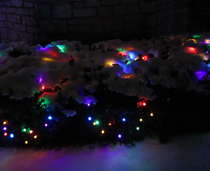
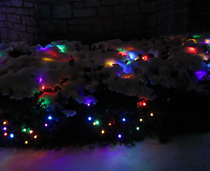
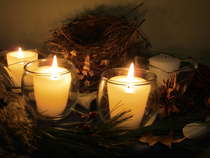 As the messengers were leaving, Jesus began to talk to the people about John: What did you go out into the wilderness to see? A reed swaying in the breeze? No? Then what did you go out to see? A man wearing fine clothes? Oh no, those who wear fine clothes are to be found in palaces. Then what did you go out for? To see a prophet? MT 11
As the messengers were leaving, Jesus began to talk to the people about John: What did you go out into the wilderness to see? A reed swaying in the breeze? No? Then what did you go out to see? A man wearing fine clothes? Oh no, those who wear fine clothes are to be found in palaces. Then what did you go out for? To see a prophet? MT 11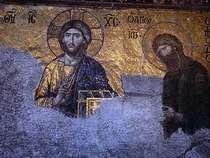
 Jesus spoke to the crowds: What description can I find for this generation? It is like children shouting to each other as they sit in the market place:
Jesus spoke to the crowds: What description can I find for this generation? It is like children shouting to each other as they sit in the market place: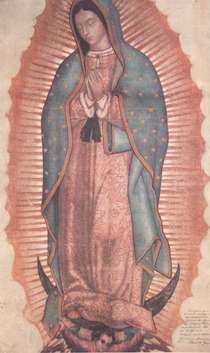 By his reply I realised he did not think it to be thy order. Send, Lady, a person of mark that he may believe it. My lady, I am a paltry fellow, a man of straw, a bumpkin, a commoner and Thou my child, my lady, didst send me to a place I go not, where I stay me not. Forgive me the great grief I cause thee, lady and mistress mine.”
By his reply I realised he did not think it to be thy order. Send, Lady, a person of mark that he may believe it. My lady, I am a paltry fellow, a man of straw, a bumpkin, a commoner and Thou my child, my lady, didst send me to a place I go not, where I stay me not. Forgive me the great grief I cause thee, lady and mistress mine.”